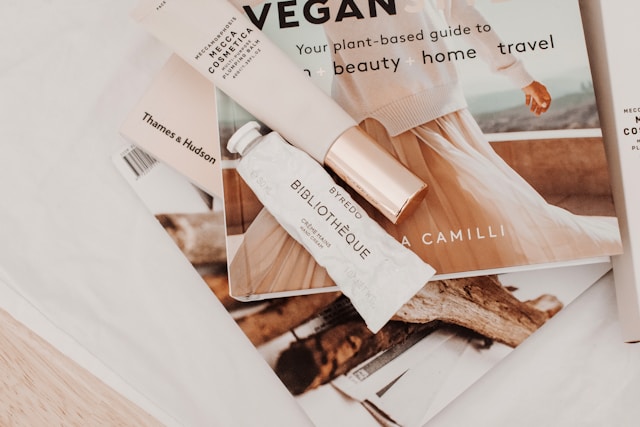The impact of make-up and cosmetics on the environment: how to promote sustainability

Many people around the world have found happiness, a way to express themselves and self-confidence thanks to the beauty industry. Unfortunately, the makeup industry’s use of hazardous chemicals and plastic packaging is dramatically impacting our world. As the need for beauty items grows, so does the damage that making, using, and disposing of them does to the earth. Nowadays, brands that put sustainability first are becoming increasingly popular.
What cosmetics do to the environment
Cosmetic items and skin care products often contain substances that are harmful to the environment. Chemicals such as parabens, manufactured fragrances and microplastics are found in many cosmetics and are often washed into our soil and water systems.
Microplastics that never break down are found in exfoliating scrubs, toothpaste and sparkling cosmetics. In addition, many chemicals used in cosmetics come from natural sources and are already under great pressure. For example, palm oil is often found in beauty products, but its cultivation has resulted in the felling of trees in warm areas. According to the World Wildlife Fund (WWF), 48 million tons of palm oil are used worldwide every year.
However, there is a shift towards more sustainable beauty practices. There are manufacturers of gold leaf for cosmetics that use high percentages of recycled gold. These manufacturers offer a luxurious touch to beauty products while ensuring a minimal environmental footprint.
How to promote sustainable beauty
Promoting sustainability in the cosmetics sector requires a multifaceted strategy. Fortunately, some brands are leading the way by significantly reducing their impact on the environment. Here are some ways companies can embrace change and promote sustainable beauty:
Environmentally friendly packaging
Reducing the use of single-use plastics is an essential step toward promoting sustainability. Brands offer biodegradable or refillable packaging as an alternative. Instead of plastic, reusable containers, glass and metal can significantly reduce waste.
Sustainable sourcing of ingredients
It is crucial to ensure that cosmetic components are sourced ethically and sustainably. Consumers are becoming increasingly aware and want to know where their products come from and how they are made.
Brands can support sustainability by including plant-based, cruelty-free and sustainably produced products. Ingredients like organic oils and botanicals grown without dangerous pesticides reduce damage to the environment and appeal to health-conscious customers.
Green certifications and labels
Certifications such as ‘EcoCert’, ‘Leaping Bunny’ and ‘Fair Trade’ can help companies demonstrate their commitment to sustainability. These quality marks confirm that a product meets specific environmental and ethical requirements.
Innovative formulations
By developing waterless goods that require less production energy, companies can drastically minimize their carbon impact. There is increasing interest in minimalist beauty routines, which encourage the use of fewer multi-functional items, leading to less waste overall.
Wrapping up
As sustainability becomes a higher priority for many, companies must engage in research and development to produce more environmentally friendly goods and processes. Brands can transform the beauty industry without endangering the health of our planet. Beauty should be more than just superficial; it must also demonstrate a strong commitment to caring for the earth.




